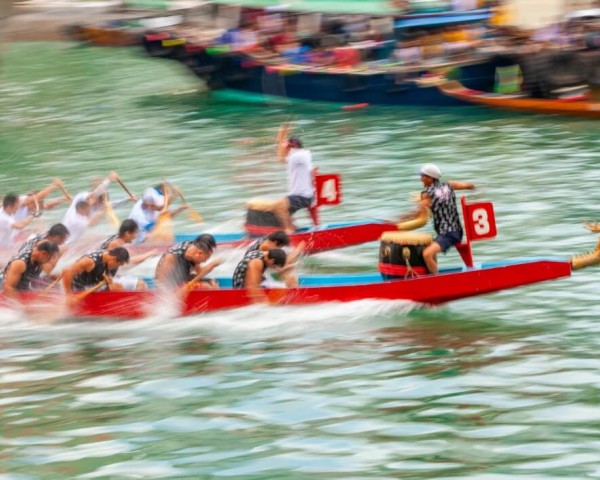Hong Kong has become a hotspot for international sports tourism. The city isn’t just resting on its past; instead, it now uses modern facilities, smart financial moves, and a lively local vibe to draw in sports fans from all over. Homegrown athletic talent, big-name sports events, and a blend of sports into everyday culture all work together to boost its global image. In many cases, this mix of effort and partnership with the Greater Bay Area also fuels broader growth.
Strategic Investment in Sports
The government here has jumped head-first into sports tourism. On February 21, 2025, for example, Secretary for Culture, Sports and Tourism Rosanna Law noted that the 2024–25 budget now includes $7.9 billion for sports policies—a jump from the $3.9 billion set aside a decade ago. Generally speaking, these funds help keep community programs thriving, drive major events, and support athlete training. They also reinforce ideas like determination, teamwork, and even a sense of national pride, albeit in a sometimes slightly unpredictable way.
The return on this investment is quite clear. At the 2024 Paris Olympics, local athletes bagged an impressive mix of two golds and two bronzes in sports like fencing and swimming. Then, competitors racked up three gold, four silver, and one bronze medal at the Paralympic Games. Moments like these naturally highlight Hong Kong’s growing strength on the world stage.
Hosting World-Class Sports Events
Look at the city’s calendar and you’ll see non-stop action. Hong Kong’s schedule is littered with marquee sports events—some even sporting the notable “M” label that underlines their international draw. The Standard Chartered Hong Kong Marathon 2025, which drew nearly 74,000 runners, and the very first Longines Hong Kong International Horse Show held in February are just two examples that pop up unexpectedly. Even the Bank of China Hong Kong-Zhuhai-Macau Half Marathon has earned this prestigious “M” mark, which many say underscores the city’s regional influence.
In 2023, the city put on a record 15 “M”-labeled events just last year. This list included standout competitions such as the Aramco Team Series in golf and the FIA World Rallycross Championship. These gatherings were bolstered by roughly $610 million from the Department of Recreation and Cultural Services (LCSD), which backs over 11,000 sports programs and engages more than 750,000 participants. Also, a further injection of $232 million from the Arts and Sport Development Fund has helped local athletes shine and nudged sports tourism a notch higher in stimulating the local economy.
Kai Tak Sports Park: A Game-Changer
When Kai Tak Sports Park opened on March 1, 2025, it marked a turning point for Hong Kong’s sports scene. This state-of-the-art venue—boasting a main stadium for 50,000 fans, an indoor center with room for 10,000, and even a 5,000-seat public sports field—quickly made its mark. Not long after its debut, the iconic Hong Kong Sevens rugby tournament took over the arena, with France managing an impressive run to the final. Chief Financial Officer Paul Chan remarked that the park isn’t just about hosting events; it’s also a magnet for big competitions and has a way of enhancing the city’s overall charm through heartfelt community involvement.
The 15th National Games and Greater Bay Area Collaboration
Looking ahead, from November 9 to 21, 2025, Hong Kong will co-host the 15th National Games with Guangdong and Macau. This isn’t just any event—it also includes the 12th National Games for Persons with Disabilities and the 9th National Special Olympics Games. Generally speaking, this is a landmark moment for the Greater Bay Area. In its own measured way, the official Greater Bay Area website promises a “simple, safe, and wonderful” edition that showcases Hong Kong’s cutting-edge facilities alongside its knack for seamless organization.
Economic and Cultural Impact
The city’s sports efforts go well beyond medals and competitions. By staging high-profile sports events and building world-class facilities, Hong Kong is steadily evolving into a dynamic, inclusive, forward-thinking metropolis. The steady influx of tourists, athletes, and media during events like the marathon or those hosted at Kai Tak stirs up local business and creates fresh job opportunities. At the same time, these sports initiatives nurture community spirit and cultural exchange—even if some days the mix feels a bit more spontaneous than planned. There’s a sense of togetherness echoing in Hong Kong’s many communities—a vibe that naturally upholds values connecting people from all walks of life.
Looking Ahead
Hong Kong is steadily marching forward, putting its money where its passion for sports lies and teaming up with partners in the Greater Bay Area. In most cases, you can see that a mix of fresh events on the horizon, modern venues such as Kai Tak Sports Park, and a real commitment to growing local talent is paving the way toward a global sports reputation. Generally speaking, this blend of forward-thinking plans and cultural roots means the city is set to spark inspiration among athletes and fans alike, all while giving a boost to both its economic and cultural scenes for many years to come.

